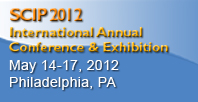|
|
||
 |
||
|
|
SCIP-CIPTM COURSE OVERVIEW Competitive Blindspot Analysis — A Tool for the Brave
Daniel Kahneman, the father of Behavioral Economics, tells a story about a statistical analysis he and Richard Thaler performed for a Wall Street investment house that showed the performance of its financial advisors had zero correlation between consecutive years. In other words, the success in one year was not an indicator of success in the next year, so it was a random event, not a skill-based expertise. The company, however, never changed its mind about success being reliably predictable and related to expertise in stock picking. No amount of evidence would have changed their mind, which is the essence of blindspots. Kahneman calls it the “certainty delusion.” The certainty delusion inflicts many experts in uncertain tasks (like stock picking or investment decisions) where intuition has little real value-add. Many top executives rely on their intuition. Most consider themselves experts in their industries. That, however, does not make their judgment any better. Actually, it makes it worse since few will question them on it, and they are powerful enough to squash any early warning evidence. In my book, Business Blindspots, I outlined dozens of cases of wrong calls by top executives that led to enormous loss of jobs and destruction of wealth. These failures were rooted in the belief in the superiority of their intuitive judgment and a total denial of evidence to the contrary. My book was written in 1994. Since then research and anecdotal evidence strongly reaffirmed the thesis of that book (see, for example, the 2004 book, “Confronting Reality” by Bossidy and Char, the former being the CEO of Allied Signal). The tools to form better judgments exist in the fundamental toolkit of the competitive intelligence professional. Where intuition is not superior, intelligence forms a better basis for decisions. The analytical frameworks of industry evolution, strategic early warning and competitor’s analysis allow the CI analyst to have a unique perspective on reality. They also allow for identification of potential blindspots. There lies the paradox: many executives with blindspots will not accept the better judgment of their subordinates. That’s why it is a Blindspot—they do not see it that way. They believe they have a handle on the situation. They believe reality is more predictable than it actually is. They believe whatever strategic risk is out there, it won’t happen on their watch, or whatever strategic opportunity they dismiss is too premature for their company. Sometimes they are right, often they are wrong. Or, often they are right, but at crucial junctures they are wrong. Yet the litmus test of competitive intelligence is taken exactly during those times when they are wrong. It is by far the most significant, the most critical, the most value-adding task of competitive intelligence to expose and correct top executives’ blindspots before the company turns into Kodak; Or Fannie Mae; Or General (Government) Motors; Or Barney Frank/Dick Cheney/Steven Chu/put the name of your favorite official here. This paradox at the core of the intelligence perspective is at the core of my course, Competitive Blindspots, the third day of the CIP™-I program. Come listen to the theory, which dates back to Barbara Tuchman’s March of Folly, and then run a case and see if you can spot blinders, and judge for yourself if you can apply it in your own company. Then, let’s discuss what you can do with it. The bottom line is if you don’t have a more realistic perspective than management, then why are you drawing a salary as a CI analyst? And yes, as a by-product you’d also learn the two most fundamental frameworks used by every CI analyst on the planet. Besides, you truly have only two choices: expand your role to industry early warning analysis, or forever provide managers with packets of competitor data. I call the latter, competitor watching. It is a cute hobby, just like bird watching. But, you don’t want to make it the foundation of your job security. About the author Ben Gilad is the author of seven books, among them Business War Games (Career press, 2009), Early Warning (AMACOM, 2004), and Business Blindspots (Irwin, 1994). He is the President and co-founder of the Fuld-Gilad-Herring Academy of Competitive intelligence (www.academyci.com). In his past he was a great strategy professor (Rutgers U), a lousy junior police intelligence officer (Israel), and an old fashioned, free market economist (Ph.D. 1981, NYU). He still misses his undergrad classes at Rutgers who believed every word he said. He does not miss the MBA classes, though. He lives with his family in Boca Raton, FL where he is the only one on his block who does not drive a Mercedes. He also holds SCIP Meritorious award from 1996. Since 1991, Ben has been running war games for the Fortunate 500 in 5 continents and every imaginable industry (for more boring info go to www.bengilad.com.)
|
|
|||||||||||||||||||||||||||||||||||||||||||||||||||||||||||||||||||||||||||||||||||||||||||||||||||||||||||||||||||||||||||||||||||||||||||||||||||||||||||||||||||||||||||||||||||||||||||||||||||||||||||||||||||||||
|
© 2011 Strategic and Competitive Intelligence Professionals |






